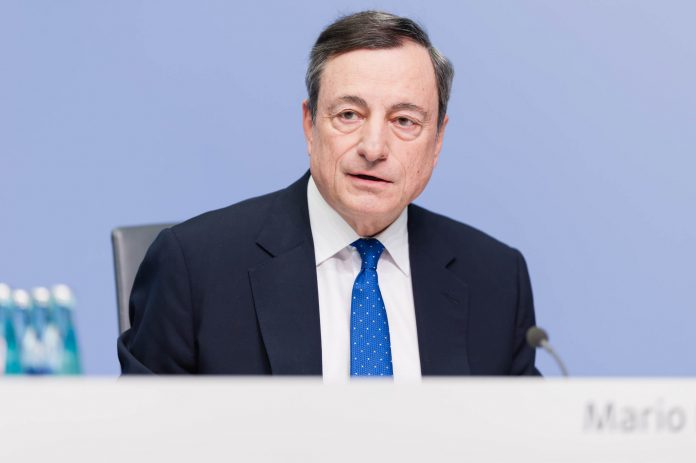European Ombudsman Emily O’Reilly on January 17 recommended that European Central Bank President Mario Draghi suspend his membership of the Group of 30 (G30) for the remainder of his term in office.
The reason, according to the Ombudsman, is to protect the bank and Draghi from any perception that the bank’s independence could be compromised. The recommendation comes after a year-long complaint-based inquiry.
The Ombudsman also recommended that future presidents of the ECB do not become members of the G30.
According to a press release issued by the European Ombudsman, the G30 is a Washington-based private group whose members consist of central bank governors, private sector bankers and academics. Membership is by invitation only. Among the members are representatives of banks supervised, directly or indirectly, by the ECB.
“The ECB takes decisions that directly affect the lives of millions of citizens,” said O’Reilly. “In the aftermath of the financial crisis, and in consideration of the additional powers given to the ECB in recent years to supervise member state banks in the public interest, it is important to demonstrate to that public that there is a clear separation between the ECB as supervisor and the finance industry which is affected by its decisions.”
O’Reilly said the ECB can legitimately continue to participate in certain public activities of the G30, but in the interests of maintaining the public’s trust in the ECB she has outlined how this participation should be managed. This includes making public the agendas and summaries of the discussions in the meetings.
O’Reilly proposed the bank further tighten its ethics rules so that members of the Executive Board are accompanied by an ECB staff member at all meetings. In addition, the ECB should adopt explicit ethics rules for the Supervisory Board, which is in charge of the ECB’s supervisory tasks.
According to the Reuters news agency, the activist group Corporate Europe Observatory, which filed the complaint to the Ombudsman, welcomed the decision as “timely and very positive”.
An ECB spokesman said the central bank had taken note of the Ombudsman’s recommendations and would respond in due course.
ECB is also facing pressure from Europe’s Greens. Shortly after the Ombudsman’s decision was announced, Sven Giegold, spokesman for the Greens in the Committee on Economic and Monetary Affairs (ECON) said: “Mario Draghi must now draw the consequences. It is high time for the ECB President to leave the G30. The ECB’s independence is at risk if Mario Draghi continues to be a permanent member of non-transparent forums with the leaders of the global financial business.”
“The Ombudsman’s criticism deserves a quick response. The ECB should now comprehensively improve its own rules for greater transparency and integrity, rather than waiting for the next slap in the face.”

